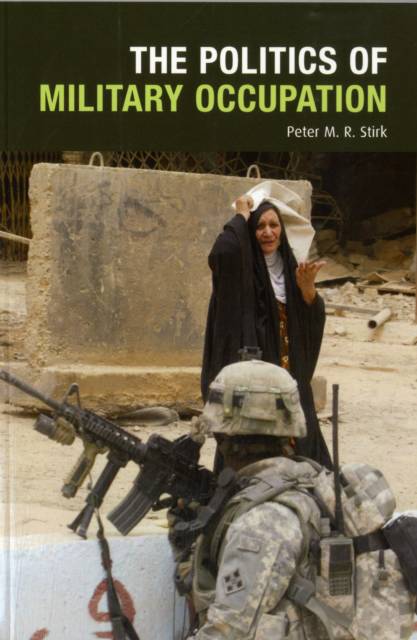
Door een staking bij bpost kan je online bestelling op dit moment iets langer onderweg zijn dan voorzien. Dringend iets nodig? Onze winkels ontvangen jou met open armen!
- Afhalen na 1 uur in een winkel met voorraad
- Gratis thuislevering in België vanaf € 30
- Ruim aanbod met 7 miljoen producten
Door een staking bij bpost kan je online bestelling op dit moment iets langer onderweg zijn dan voorzien. Dringend iets nodig? Onze winkels ontvangen jou met open armen!
- Afhalen na 1 uur in een winkel met voorraad
- Gratis thuislevering in België vanaf € 30
- Ruim aanbod met 7 miljoen producten
Zoeken
Omschrijving
Military occupation is a recurrent feature of modern international politics and yet has received little attention from political scientists. This book, newly available in paperback, sets out to remedy this neglect, offering: *an account of military occupation as a form of government*an assessment of key trends in the development of military occupations over the last two centuries*an explanation the conceptual and practical difficulties encountered by occupiers*examples drawn from, amongst others, the First and Second World Wars, US occupations in Latin America and Japan, the Israeli occupation of the West Bank, and the current occupation of Iraq.After a survey of the evolving practice and meaning of military occupation the book deals with its contested definitions, challenging restrictive approaches that disguise the true extent of the incidence of military occupation. Subsequent chapters explain the diverse forms that military government within occupation regimes take on and the role of civilian governors and agencies within occupation regimes; the significance of military occupation for our understanding of political obligation; the concept of sovereignty; the nature and meaning of justice; and our evaluation of regime transformation under conditions of military occupation.
Specificaties
Betrokkenen
- Auteur(s):
- Uitgeverij:
Inhoud
- Aantal bladzijden:
- 256
- Taal:
- Engels
Eigenschappen
- Productcode (EAN):
- 9780748644841
- Verschijningsdatum:
- 29/02/2012
- Uitvoering:
- Paperback
- Formaat:
- Trade paperback (VS)
- Afmetingen:
- 155 mm x 234 mm
- Gewicht:
- 453 g

Alleen bij Standaard Boekhandel
+ 128 punten op je klantenkaart van Standaard Boekhandel
Beoordelingen
We publiceren alleen reviews die voldoen aan de voorwaarden voor reviews. Bekijk onze voorwaarden voor reviews.











